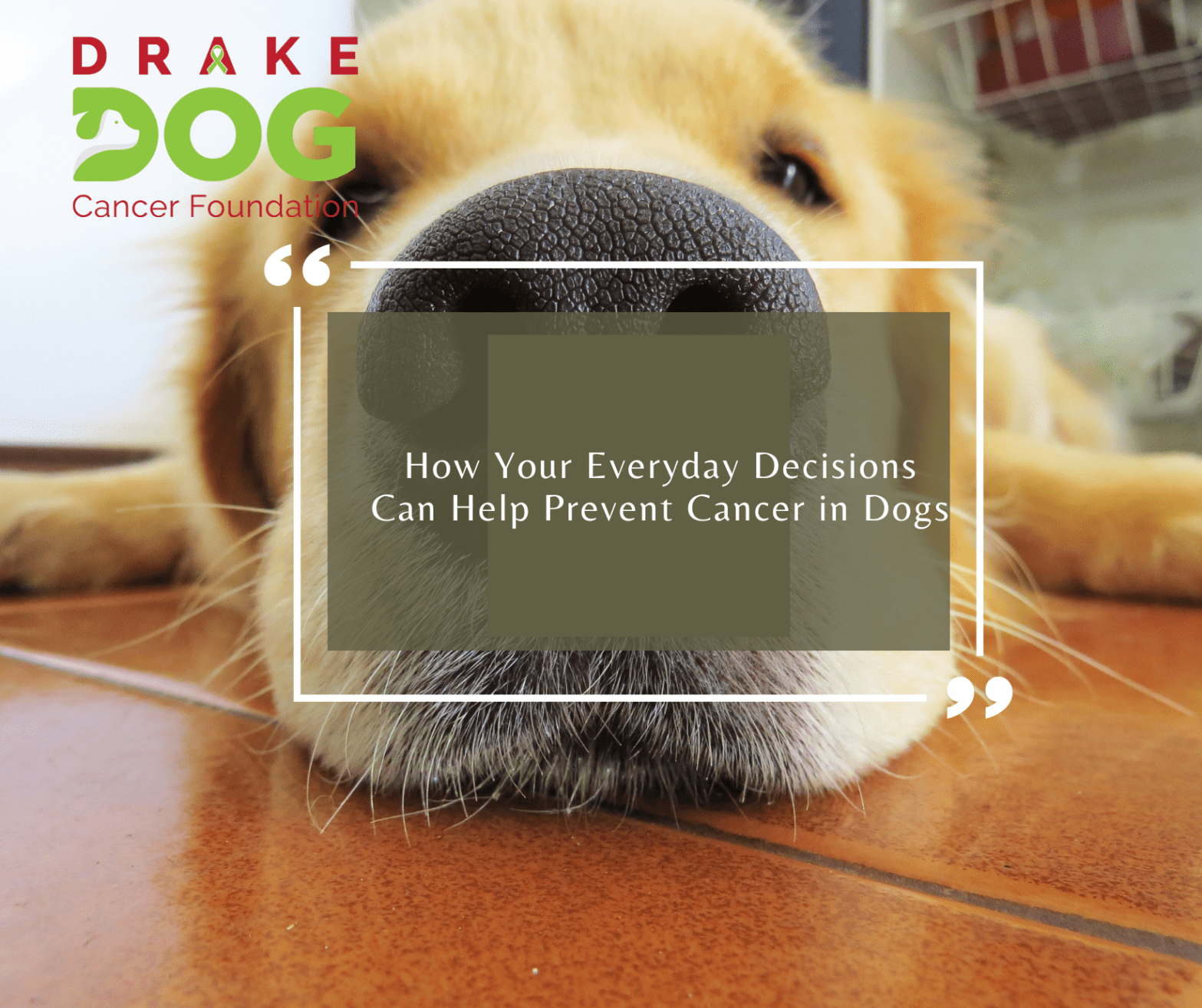Cancer in dogs is an unfortunate reality, with approximately one in three dogs being diagnosed with cancer at some point in their lives. However, there are some common-sense lifestyle choices we can make that could help prevent cancer in our four-legged friends. While these steps can’t guarantee your dog will never develop cancer, they can significantly reduce the risks and contribute to your dog’s overall well-being.
Maintain a Balanced Diet
The food that your dog eats plays a crucial role in their overall health. Providing a diet rich in high-quality protein, healthy fats, and a variety of fruits and vegetables can boost your dog’s immune system and help fight off potential diseases, including cancer. Avoid feeding your dog processed foods or those with artificial additives and preservatives. Instead, opt for natural, wholesome foods that provide the necessary nutrients your dog needs.
Regular Exercise
Regular exercise plays a significant role in preventing cancer in dogs, just as it does in humans. Engaging your dog in daily physical activity contributes to maintaining a healthy weight, which is crucial as obesity is linked to several types of cancer in dogs. Exercise also boosts your pet’s immune system, enhancing their ability to fight off cancerous cells.
Moreover, regular exercise promotes proper digestion and elimination, reducing the time potential carcinogens spend in contact with the body, particularly for cancers related to the digestive system. In essence, an active lifestyle for your dog not only reduces the risk of cancer but also improves their overall health and wellbeing.
Minimize Exposure to Toxins
Minimizing your dog’s exposure to toxins is an essential step in cancer prevention and overall health maintenance. Many household cleaners, pesticides, and even certain pet products contain harmful chemicals that can increase the risk of cancer. To reduce exposure, opt for natural or pet-friendly cleaning products when sanitizing your home.
In your yard, choose natural alternatives to chemical pesticides, or ensure your dog is safely indoors when you must use them. Be cautious about the toys and accessories you buy for your pet, ensuring they are free from harmful substances like lead or phthalates. Lastly, avoid exposing your dog to second-hand smoke, which has been linked to lung cancer in pets.
By making these conscious choices, you can significantly reduce the toxins your dog comes into contact with daily.
Regular Veterinary Check-ups
Routine veterinary check-ups are key to early detection of cancer and other diseases in dogs. Regular screenings can catch any potential issues early when they are typically easier to treat. Discuss with your vet what screenings might be appropriate for your dog, based on their breed, age, and lifestyle.
Spaying/Neutering
Spaying and neutering, also known as de-sexing, are procedures that have significant implications for the health of your dog, including a marked impact on the rates of certain types of cancer. For female dogs, spaying before the first heat cycle significantly reduces the risk of mammary gland tumors, the most common malignant tumors in female dogs. It also completely prevents uterine, ovarian, and cervical tumors, which can also be cancerous.
For male dogs, neutering eliminates the risk of testicular cancer, though it’s worth noting that testicular cancer is not typically life-threatening in dogs. While spaying and neutering can potentially increase the risks of certain other cancers, on balance, the procedure often leads to a net reduction in the risk of cancer.
Always discuss the timing and implications of these procedures with your vet to make the best decision for your pet’s overall health.
Oral Hygiene
Maintaining good oral hygiene in dogs can play a role in cancer prevention. Poor oral health can lead to periodontal disease, which is associated with an increased risk of oral malignant tumors. Regular teeth brushing helps remove plaque and bacteria that can cause gum disease and subsequent infections.
These infections, if left untreated, can become chronic and cause inflammation, which can potentially lead to the development of cancer. Moreover, regular dental check-ups can aid in the early detection of oral tumors or other abnormalities. So, good oral hygiene is a critical part of your dog’s overall health regimen and a proactive measure against cancer.
Limit Sun Exposure
Excessive sun exposure can increase the risk of skin cancer in dogs, just like in humans. Prolonged exposure to UV rays can lead to sunburns and cumulative damage, which may result in the development of skin tumors. This is particularly true for dogs with short, thin, or white/light-colored coats, as they have less natural protection against the sun.
To reduce your dog’s risk, limit their sunbathing times, especially during peak sunlight hours when the sun’s rays are the strongest. Always provide plenty of shaded areas for them to rest and consider applying pet-safe sunscreen on their exposed skin.
Sun exposure isn’t all bad—it’s a natural source of vitamin D—but like most things, moderation is key.
A Smoke-Free Environment
Second-hand smoke is as harmful to dogs as it is to humans, and it can increase the risk of lung cancer in your pet. If you are a smoker, consider quitting for your health and your dog’s, or ensure you smoke far away from your furry friend.
Reduce Your Dog’s Cancer Risk
While these common-sense lifestyle choices can’t entirely eliminate the risk of cancer in dogs, they can go a long way in reducing the risk and enhancing your pet’s quality of life. Remember, prevention starts with understanding and making the right decisions for your pet’s health. In the end, our furry companions rely on us to provide them with a healthy and happy life.

😀 <3
<3 Regards Lisa